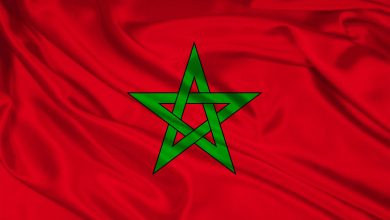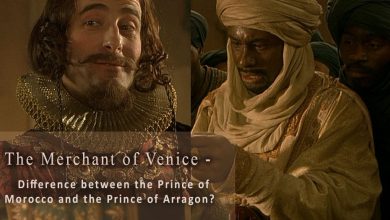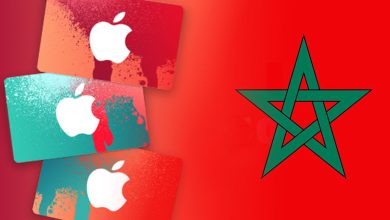
When it comes to the gold casket in the Merchant of Venice, there are a few different theories about why Morocco chose it. Some say that it was because of the gold’s reflective properties, which would have made it a perfect choice for a royal wedding. Others believe that the country was trying to send a message to Venice, perhaps as a way of protesting the way they had been treated by the Venetian authorities. What do you think was the reason behind Morocco’s choice? Discover the answer to why did morocco choose the gold casket in this article.
What is “The Merchant of Venice”?
The Merchant of Venice is a play by William Shakespeare, believed to have been written between 1596 and 1598. It is considered one of Shakespeare’s most mature works and is often seen as one of his finest comedies.
This play has been turned into a movie in 2004 that is quite popular.
What is Merchant of Venice about – short summary?
The Merchant of Venice is a play by William Shakespeare, believed to have been written between 1596 and 1598. It tells the story of a merchant named Antonio who borrows money from a Jewish moneylender, Shylock, in order to help his friend Bassanio woo a rich heiress. When Antonio can’t repay the loan, Shylock demands a pound of his flesh as payment. The play is notable for exploring the themes of prejudice and mercy.
Merchant of Venice – Why did Morocco choose the gold casket?
The Prince of Morocco chose the gold casket in The Merchant of Venice because gold is the most valuable of the three commodities available, and he connects this with Portia’s worth. Gold, he claims, is the natural setting for a valuable gem.
Why does Morocco not use a lead casket in this case?
He turned down the lead casket because it threatened him rather than offered him hope. A noble mind, he claimed, would not risk or sacrifice anything for a lead casket.
What is within the gold casket that the Prince of Morocco opens? The Prince of Morocco is the first suitor. He is really attractive, but he is also arrogant. The gold casket appeals to him since the inscription said: “Who chooseth me shall gain what many men desire”. But when he opened the golden casket all he could see inside it was a skull and a scroll inside.
What factors influenced his decision?
The golden casket is finally chosen by the Prince of Morocco. Morocco claims that a saintly person like Portia cannot be contained in the basic lead. Silver, which is ten times less valuable than gold, cannot hold Portia because he is such a valuable diamond.
Also, the Prince of Morocco rejected the silver casket because he believed that if he is judged by his own standards, his credentials may be extremely good enough to win Portia, but to be assured of what he deserves is a display of weakness that will bring him dishonor.
What was inside the caskets in The Merchant of Venice?
What was inside the golden casket?
He picks the golden casket because it says that what is inside is what all men desire. But instead of Portia’s picture, the casket contains a skull with a scroll stuck through an eye socket. The scroll tells him he has made a mistake. Part of what it says is the famous line “All that glitters is not gold.”
What was inside the lead casket?
Finally, the lead chest, which is made of a very humble metal, seems to symbolize inner beauty and modesty (the exact opposite of the shiny gold casket) and contains a picture of Portia. The inscription is also significant: “Who chooseth me must give and hazard all he hath” (2.7. 5).
What is found in the casket chosen in Scene 7?
Answer: The Prince chose the golden casket. It contained a skull in whose eye there was a scroll which read that all that glitters is not gold. He had chosen unwisely and now had to bear its consequences.
Which casket does Morocco choose and why?
In The Merchant of Venice, the Prince of Morocco chooses the gold casket because gold is the most valuable of the three substances on offer, and he equates this with Portia’s value. He says that gold is the natural setting for a precious jewel.
What does Morocco say about the silver casket?
Moving on Morocco considers the silver casket which bears the inscription, “Who chooseth me shall get as much as he deserves.” He pauses on the expression, “as much as he deserves,” to weigh himself with a fair hand. He exposes his own fear that he does not deserve Portia.
What is the main message of The Merchant of Venice?
The Merchant of Venice is a play that revolves around the central theme of mercy. The characters struggle with the question of how much mercy they should show to others, and this question is explored in different ways throughout the play.
The main message of The Merchant of Venice is that mercy is important and that it is worth fighting for. The characters who are able to show mercy ultimately find happiness and peace, while those who are unable to show mercy are consumed by anger and bitterness.
In summary
When choosing between two caskets, gold, and silver, Morocco chose the gold casket in Shakespeare’s play, “The Merchant of Venice.” This casket was said to contain the portrait of a beautiful woman, which is what Morocco wanted most. Some believe that the gold casket was chosen because it represented more wealth and power, while others believe that the choice was more sentimental. No matter the reason, the decision to choose the gold casket was an important one, and it ultimately led to Morocco’s downfall.







